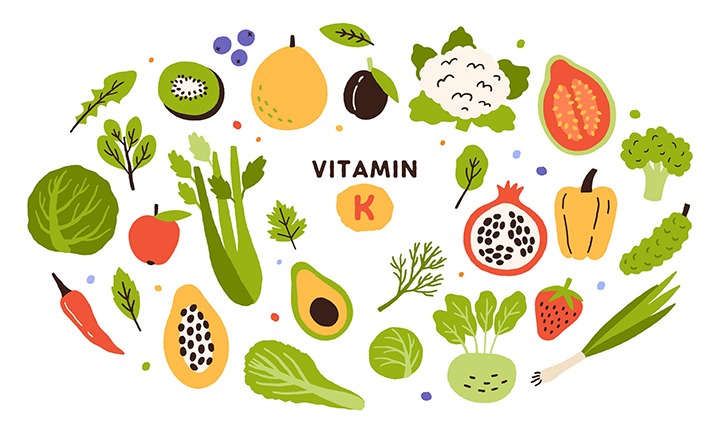Many people confuse vitamin K for potassium, but potassium is a mineral, not a vitamin. The confusion likely comes from the chemical symbol for potassium on the periodic table being K.
Potassium is an electrolyte that helps cells complete basic functions and can help control blood pressure. Vitamin K, meanwhile, is best at helping your blood clot and improving bone metabolism, which slows calcification.
And there are benefits of vitamin K that go beyond those reasons. Bronx Center for Rehabilitation and Nursing has a look at those benefits and the foods that are the best sources of vitamin K.
Why Is Vitamin K Important as You Age?
Studies find that half of Americans age 51 and older aren’t getting enough vitamin K, and that number jumps up to two-thirds for those over 70. It’s important to get enough, however, because studies show that a deficiency in vitamin K can lead to a higher chance of having coronary heart disease.
Another study found that people over 70 with adequate vitamin K levels performed better in cognitive tests than those who were deficient.
The bone metabolism benefits also shown in studies that people getting the correct amount of vitamin K have stronger bones and are less likely to break a hip or other bones in a fall.
What Foods Are Rich in Vitamin K?
The recommended daily allotment of vitamin K is 120 micrograms (mcg) in men and 90 mcg for women. Fortunately, there are some foods that provide you with the enough vitamin K for the day in just one serving.
Topping the list is raw spinach; one cup gives you 145 mcg of vitamin K. A cup of raw kale, meanwhile, is 113 mcg, and broccoli is another great source, as ½ cup of chopped and boiled broccoli is 110 mcg.
Other foods don’t contain as much as those three greens, but soy beans, edamame, okra, pine nuts, blueberries, and chicken breast are also good sources of vitamin K.
If you’re wondering or concerned about your vitamin K levels, you should talk to your doctor before taking any supplements, as the clotting properties of vitamin K can interfere with certain medications and conditions.
To learn more about Bronx Center for Rehabilitation and Nursing and all of the services they offer, visit http://bronx-center.facilities.centershealthcare.org/.






